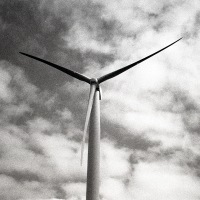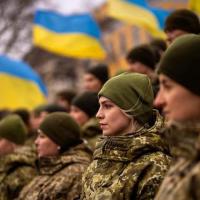
I confess: as soon as I heard about this project I was sold. The history is so special, so out of the ordinary, that it would be impossible for whatever projects that went in contact with it not to acquire some of that originality, depth and playfulness.
The Wolfpack, i.e., the Crystal Moselle‘s documentary, follows the lives of six brothers who spent 14 years locked away from society in a Lower East Side housing project. Their paranoid father forbade them, along with their mother and sister, from leaving the apartment. Movies provided their only window to the outside world: they learned almost everything they knew from obsessively watching films like Reservoir Dogs, Pulp Fiction, and The Dark Knight, and they spent their days reenacting scenes and violent, movie-inspired fantasies.


The photographic project (Wolves Like Us), by Dan Martensen, follows the Angulo‘s brothers as they come in contact with the outside world. Martensen started photographing them in 2010. The photographs and the movie are quite different approaches to the same reality. In Moselle‘s documentary we see the ambiance of fear in which the brothers lived for a big part of their lives and the resentment towards their father becomes almost a forth dimension. In Martensen‘s photographs we see the brother’s potential, their creativity, their joy, their will to live out their lives in the outside world, in the midst of nature and other human beings.




At one point in Moselle‘s documentary, the mother explains how they (she and her husband) feel about interacting with other people and she comments that her socialization in school was not very positive, so they decided to keep their distance. The story is much more complex and Moselle‘s documentary gives us an insight into how dangerous it is to make such a decision, i.e., to keep your kids imprisoned in a house for reasons that have to do with your own fear of the world. No doubt this story would have had a tragic end if the kids hadn’t started to rebel against their father. In the brothers’ discourse hanger is almost at the point of turning into hate.
About the moment when they started to leave the house, their mother comments that it was their way into “normalcy”. It’s complex. Their mother, Susanne Reisenbichler, it’s a central figure in all of this. Apparently, she fell in love for Oscar‘s open spirit, but latter realized it was all but free and that they had to live by his rules (the Angulos’ parents met when hippie Susanne was on the Machu Picchu trail, in Peru, where she met Oscar, a Hare Krishna follower. They gave their children ancient Indian names. How come the pair settled in New York? “They didn’t mean to stay there,” says Govinda, “but because Dad didn’t believe in working for a living, our options were limited.”) She cries, she laments their upbringing and we are left wondering what really went on behind those walls. When we hear Oscar, the father, stating that “[his] power is influencing everybody” I shiver. No doubt, a lot is left in the dark. What do these kids mean when they say that “sometimes there are things that you just…you just don’t for… you just don’t get over, you just don’t forgive”?
When Moselle‘s documentary won the Sundance Grand Prize Jury Award the brothers’ story was put on display. So much so that it was appropriated by the art market, as an example of was a mix between ‘pop art’ and ‘primitivism’. Of course this is the critical perspective, not theirs. No doubt their intentions are honest, to share their creative view of the world, to help change their lives, etc, etc, but what will this amount to? Apparently, they are all doing great.
The Wolfpack Show is an exhibition hosted by Jeffrey Deitch, showcasing the elaborate homemade movie props, costumes, and scripts created by Mukunda, Govinda, Narayana, Jagadisa, Bhagavan, and Krisna for their recreations of blockbuster films.










